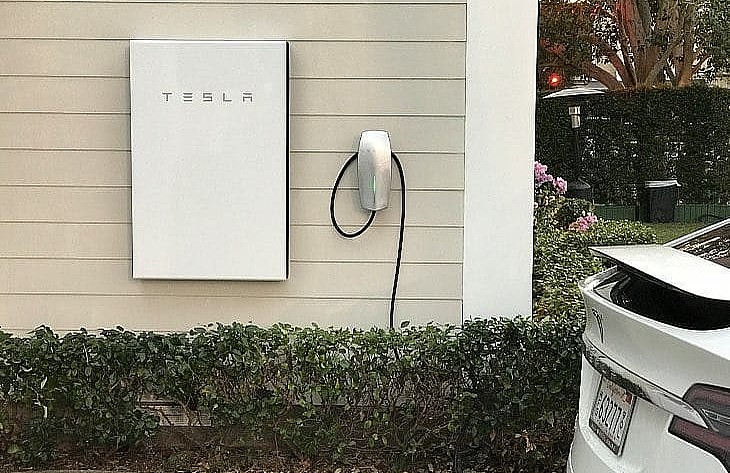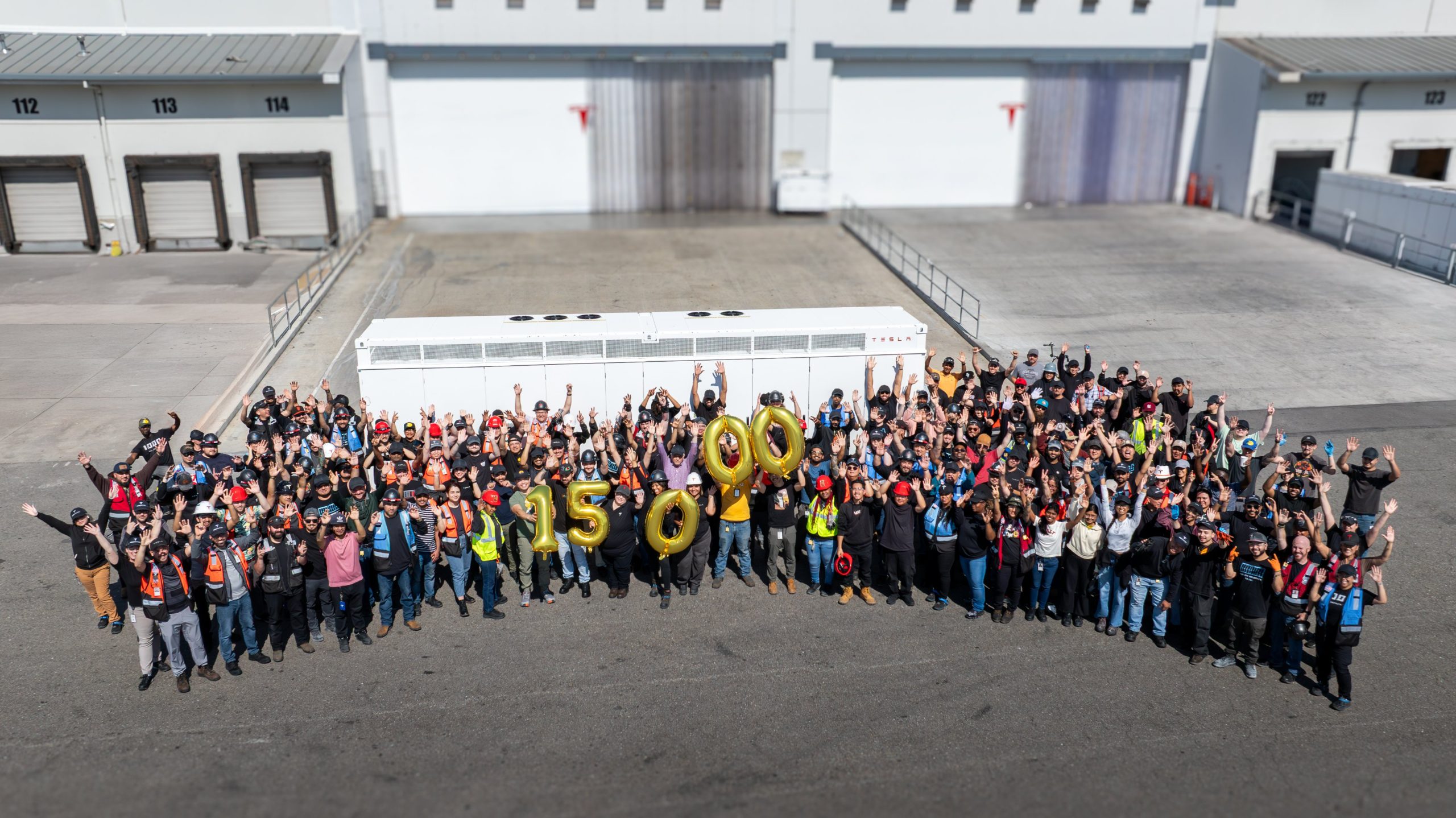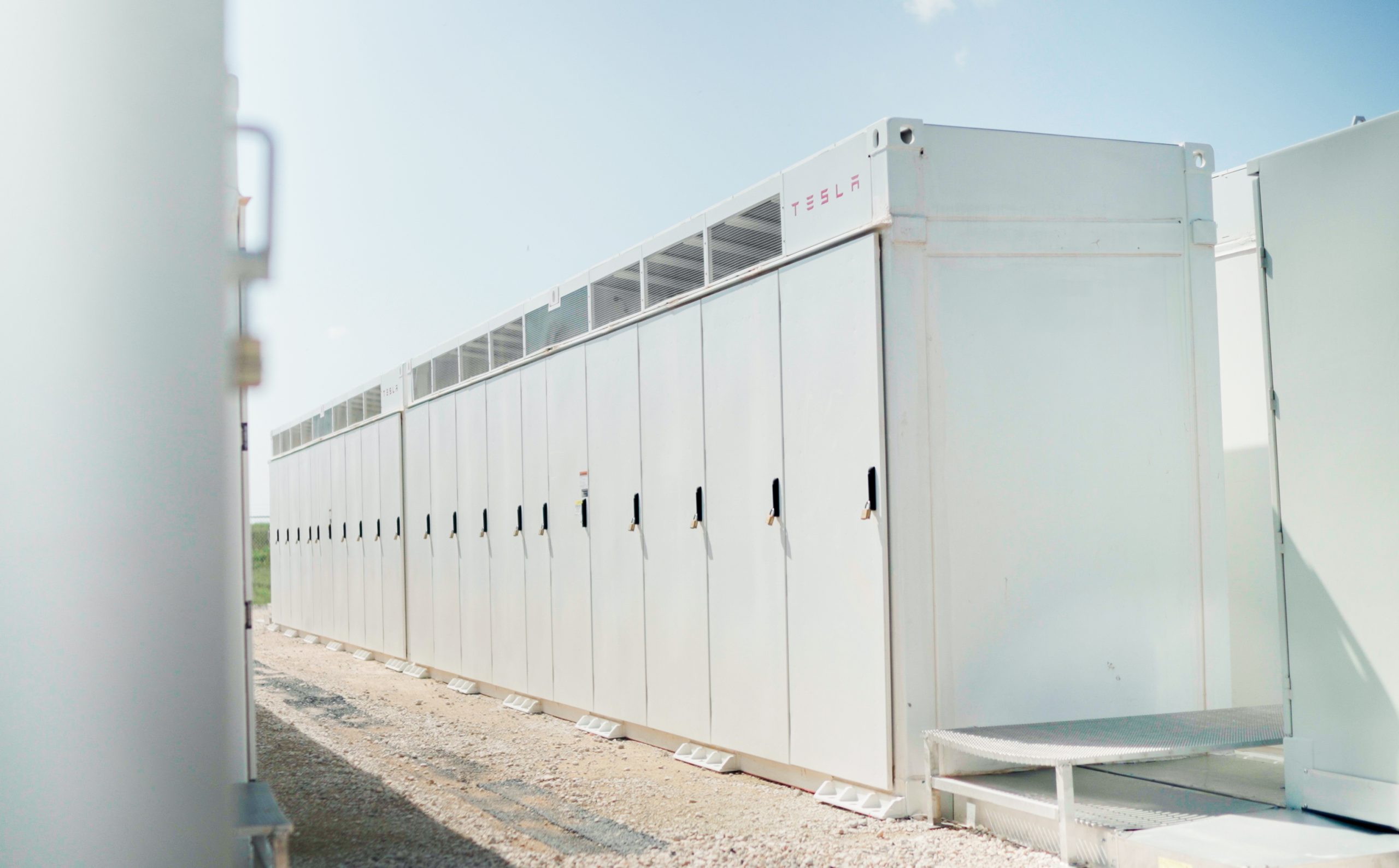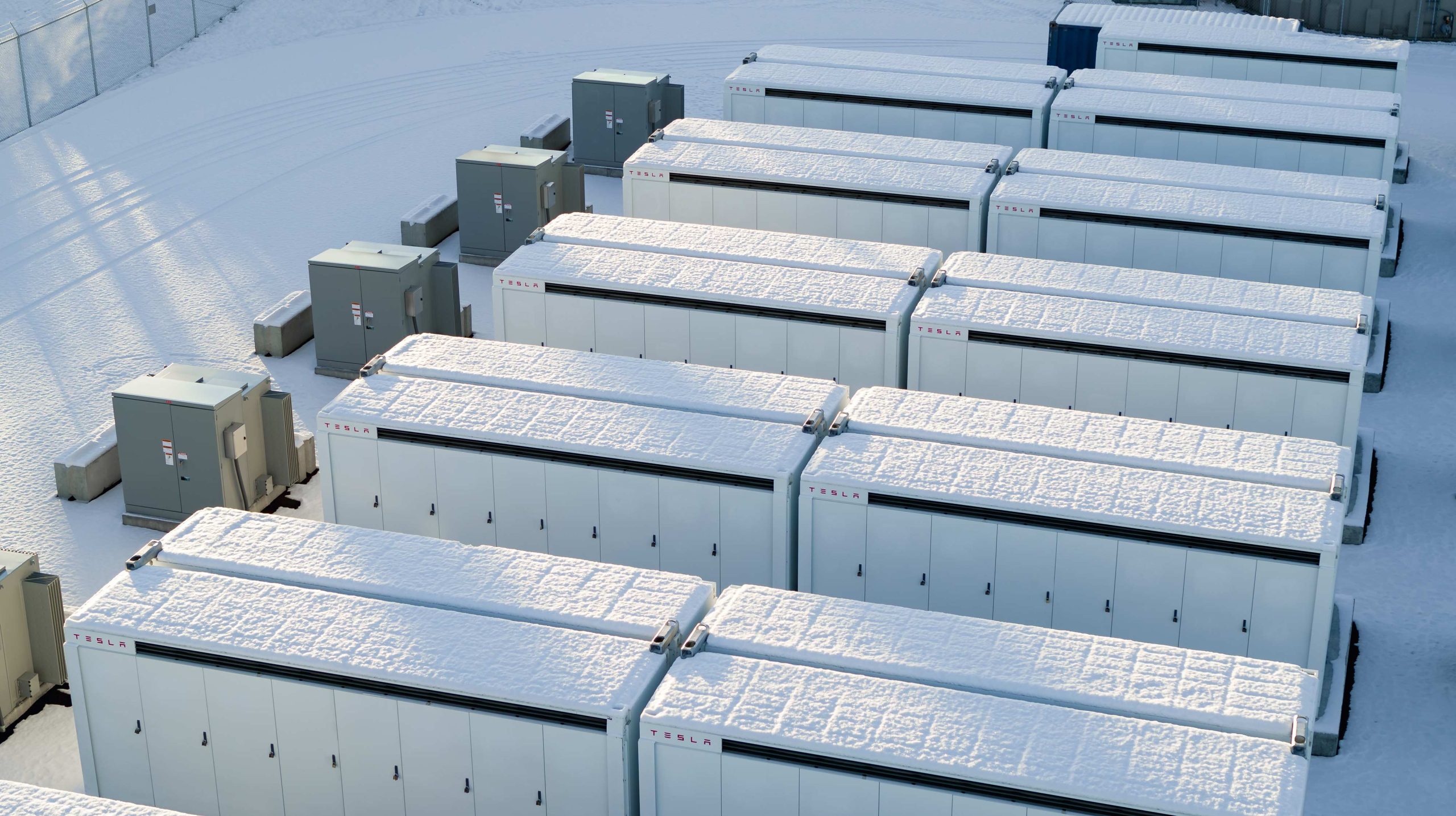

Energy
Tesla Powerwall batteries are aiding home workers in Elon Musk’s country of birth
Amidst the COVID-19 pandemic, work-from-home employment has become the norm. Unfortunately, in South Africa, the country of Tesla CEO Elon Musk’s birth, the return of load-shedding practices from Eskom, an electricity public utility, meant that employees working from home are at risk of losing power during work hours. That is, at least, if they do not have backups like Tesla Powerwall batteries.
Rubicon Renewables, Tesla’s official distributor of the Powerwall in South Africa, recently revealed that there has been a significant uptake in the home battery system from companies that have a notable work-from-home workforce. With the Powerwall in place, companies can be assured that their employees could work from home without experiencing power issues, even when Eskom implements its load shedding practices.
The Powerwall, after all, is a self-contained battery and inverter system that could keep crucial appliances and other electrical devices powered during outages, or when the rolling blackouts implemented by the public utility happens.
In a statement to local media, Rubicon sales director Greg Blandford noted that the increased demand for the Powerwall would likely continue through 2021 due to the existing effects of the COVID-19 pandemic. “We have seen a consistent ramp-up since launch in South Africa and will see demand grow through 2021 irrespective of load-shedding,” he said.
Explaining further, Blanford stated that it is not just local companies that are starting to adopt the Tesla Powerwall as a way to weather the country’s power issues. The home battery system has also the home battery of choice among individual consumers, many of whom are working from home as well.
“COVID-19 has created new ways of doing business. Many companies have allowed employees to work from home, the only risk to business interruption being load-shedding. Clients have realized the need for energy security in the case of working from home and hence trust brands such as Tesla to supply them with their energy needs. It has taken some time for consumers to realize that Eskom’s woes are here to stay and the combination of load-shedding and COVID-19 has caused consumers to take control of their own power needs,” Blanford said.
Ultimately, the Rubicon sales director remarked that the demand for the Tesla Powerwall in South Africa may very well be driven in no small part by a key factor—it is simply one of, if not the best, home energy storage product available in the market today.
Don’t hesitate to contact us for news tips. Just send a message to tips@teslarati.com to give us a heads up.
Energy
Tesla Lathrop Megafactory celebrates massive Megapack battery milestone
The Tesla Megapack is the backbone of Tesla Energy’s battery deployments.

The Tesla Lathrop Megafactory recently achieved a new milestone. As per the official Tesla Megapack account on X, the Lathrop Megafactory has produced its 15,000th Megapack 2 XL battery.
15,000 Megapack Batteries
Tesla celebrated the milestone with a photo of the Lathrop Megafactory team posing with a freshly produced Megapack battery. To commemorate the event, the team held balloons that spelled out “15,000” as they posed for the photo.
The Tesla Megapack is the backbone of Tesla Energy’s battery deployments. Designed for grid-scale applications, each Megapack offers 3.9 MWh of energy and 1.9 MW of power. The battery is extremely scalable, making it perfect for massive energy storage projects.
More Megafactories
The Lathrop Megafactory is Tesla’s first dedicated facility for its flagship battery storage system. It currently stands as the largest utility-scale battery factory in North America. The facility is capable of producing 10,000 Megapack batteries every year, equal to 40 GWh of clean energy storage.
Thanks to the success of the Megapack, Tesla has expanded its energy business by building and launching the Shanghai Megafactory, which is also expected to produce 40 GWh of energy storage per year. The ramp of the Shanghai Megafactory is quite impressive, with Tesla noting in its Q1 2025 Update Letter that the Shanghai Megafactory managed to produce over 100 Megapack batteries in the first quarter alone.
Tesla Energy’s Potential
During the first quarter earnings call, CEO Elon Musk stated that the Megapack is extremely valuable to the energy industry.
“The Megapack enables utility companies to output far more total energy than would otherwise be the case… This is a massive unlock on total energy output of any given grid over the course of a year. And utility companies are beginning to realize this and are buying in our Megapacks at scale,” Musk said.
Energy
Tesla Megapacks powers the xAI Colossus supercomputer
Tesla Megapacks step in to stabilize xAI’s Colossus supercomputer, replacing natural gas turbines. Musk’s ventures keep intertwining.

Tesla Megapack batteries will power the xAI Colossus supercomputer in Memphis to ensure power stability. The collaboration between Tesla and xAI highlights the synergy among Elon Musk’s ventures.
The artificial intelligence startup has integrated Tesla Megapacks to manage outages and demand surges, bolstering the facility’s reliability. The Greater Memphis Chamber announced that Colossus, recently connected to a new 150-megawatt electric substation, is completing its first construction phase. This transition addresses criticism from environmental justice groups over the initial use of natural gas turbines.
“The temporary natural gas turbines that were being used to power the Phase I GPUs prior to grid connection are now being demobilized and will be removed from the site over the next two months.
“About half of the operating turbines will remain operating to power Phase II GPUs of xAI until a second substation (#22) already in construction is completed and connected to the electric grid, which is planned for the Fall of 2025, at which time the remaining turbines will be relegated to a backup power role,” the Chamber stated.
xAI’s rapid development of Colossus reflects its ambition to advance AI capabilities, but the project has faced scrutiny for environmental impacts. The shift to Megapacks and grid power aims to mitigate these concerns while ensuring operational continuity.
The Megapack deployment underscores the collaboration among Musk’s companies, including Tesla, SpaceX, Neuralink, and The Boring Company. Tesla appears to be the common link between all of Musk’s companies. For example, The Boring Company built a tunnel in Giga, Texas. In addition, Musk has hinted at a potential collaboration between the Tesla Optimus Bot and Neuralink. And from January 2024 to February 2025, xAI invested $230 million in Megapacks, per a Tesla filing.
Tesla Energy reported a 156% year-over-year increase in Q1 2025, deploying 10.4 GWh of storage products, including Megapacks and Powerwalls. Tesla’s plans for a new Megapack factory in Waller County, Texas, which is expected to create 1,500 jobs in the area, further signal its commitment to scaling energy solutions.
As xAI leverages Tesla’s Megapacks to power Colossus, the integration showcases Musk’s interconnected business ecosystem. The supercomputer’s enhanced stability positions xAI to drive AI innovation, while Tesla’s energy solutions gain prominence, setting the stage for broader technological and economic impacts.
Energy
Tesla Energy celebrates one decade of sustainability
Tesla Energy has gone far since its early days, and it is now becoming a progressively bigger part of the company.

Tesla Energy recently celebrated its 10th anniversary with a dedicated video showcasing several of its milestones over the past decade.
Tesla Energy has gone far since its early days, and it is now becoming a progressively bigger part of the company.
Tesla Energy Early Days
When Elon Musk launched Tesla Energy in 2015, he noted that the business is a fundamental transformation of how the world works. To start, Tesla Energy offered the Powerwall, a 7 kWh/10 kWh home battery system, and the Powerpack, a grid-capable 100 kWh battery block that is designed for scalability. A few days after the products’ launch, Musk noted that Tesla had received 38,000 reservations for the Powerwall and 2,500 reservations for the Powerpack.
Tesla Energy’s beginnings would herald its quiet growth, with the company later announcing products like the Solar Roof tile, which is yet to be ramped, and the successor to the Powerwall, the 13.5 kWh Powerwall 2. In recent years, Tesla Energy also launched its Powerwall 3 home battery and the massive Megapack, a 3.9 MWh monster of a battery unit that has become the backbone for energy storage systems across the globe.
Key Milestones
As noted by Tesla Energy in its recent video, it has now established facilities that allow the company to manufacture 20,000 units of the Megapack every year, which should help grow the 23 GWh worth of Megapacks that have already been deployed globally.
The Powerwall remains a desirable home battery as well, with more than 850,000 units installed worldwide. These translate to 12 GWh of residential entry storage delivered to date. Just like the Megapack, Tesla is also ramping its production of the Powerwall, allowing the division to grow even more.
Tesla Energy’s Role
While Tesla Energy does not catch as much headlines as the company’s electric vehicle businesses, its contributions to the company’s bottom line have been growing. In the first quarter of 2025 alone, Tesla Energy deployed 10.4 GWh of energy storage products. Powerwall deployments also crossed 1 GWh in one quarter for the first time. As per Tesla in its Q1 2025 Update Letter, the gross margin for the Energy division has improved sequentially as well.
-

 Elon Musk2 weeks ago
Elon Musk2 weeks agoTesla investors will be shocked by Jim Cramer’s latest assessment
-

 Elon Musk3 days ago
Elon Musk3 days agoxAI launches Grok 4 with new $300/month SuperGrok Heavy subscription
-

 Elon Musk5 days ago
Elon Musk5 days agoElon Musk confirms Grok 4 launch on July 9 with livestream event
-

 News1 week ago
News1 week agoTesla Model 3 ranks as the safest new car in Europe for 2025, per Euro NCAP tests
-

 Elon Musk1 week ago
Elon Musk1 week agoxAI’s Memphis data center receives air permit despite community criticism
-

 News2 weeks ago
News2 weeks agoXiaomi CEO congratulates Tesla on first FSD delivery: “We have to continue learning!”
-

 News2 weeks ago
News2 weeks agoTesla sees explosive sales growth in UK, Spain, and Netherlands in June
-

 Elon Musk2 weeks ago
Elon Musk2 weeks agoTesla scrambles after Musk sidekick exit, CEO takes over sales

















